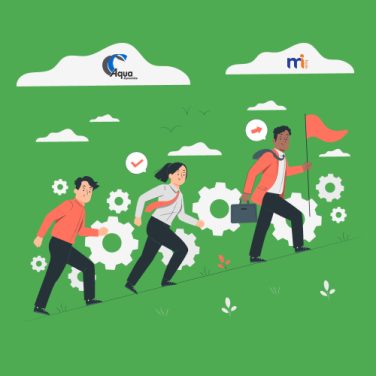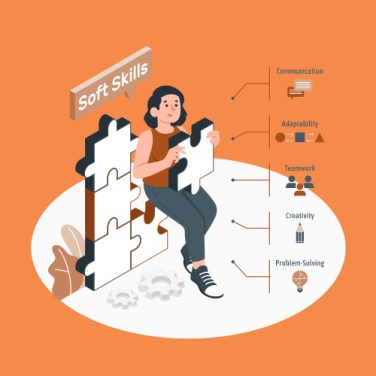The integration of Artificial Intelligence (AI) in the recruitment processes is rapidly transforming the way candidates are screened and evaluated.
AI candidate screening revolutionises traditional methods, enhancing the ability of HR departments to swiftly and accurately identify qualified candidates from a vast pool of applicants.
Why AI is essential in recruitment

The use of AI-driven technologies in candidate screening addresses longstanding challenges in the recruitment process.
Traditional screening is often time-consuming and labour-intensive, leading to inefficiencies and potential biases. AI overcomes these hurdles by automating repetitive tasks, ensuring a faster and more objective candidate evaluation.
With capabilities such as resume parsing and data analysis, AI solutions can quickly filter out unqualified candidates and highlight those who best meet the job requirements.
AI overcoming traditional recruitment challenges
AI’s role in recruitment extends beyond mere efficiency. It significantly reduces bias by focusing on candidates’ qualifications and skills rather than subjective factors. This opens the door to a more diverse workforce and fosters inclusive hiring practices.
Furthermore, AI enhances candidate engagement through automated interactions and personalised experiences, making the application process more appealing and user-friendly.
Platforms like MiHCM leverage AI to provide seamless CV viewing and data-driven analytics, facilitating smoother candidate management.
By transforming the recruitment landscape, AI empowers companies to not only streamline their candidate screening process but also unlock valuable insights into their talent acquisition strategies.
For a more comprehensive understanding of AI in recruitment, explore our ultimate guide to artificial intelligence in recruitment for further insights.
As AI technologies continue to revolutionise candidate screening, measuring success becomes pivotal. Various metrics can help assess the impact AI has on recruitment processes, ensuring efficiency and positive candidate experiences.
Key metrics include time-to-hire, cost per hire, and candidate satisfaction – each a vital indicator of how AI transforms recruitment dynamics.
Efficiency and effectiveness
One of the most significant advantages of AI in candidate screening is its ability to expedite the recruitment process. By leveraging AI, businesses can drastically reduce the time-to-hire.
AI tools improve recruitment efficiency by automating resume parsing, quickly highlighting potential candidates, and seamlessly managing candidate data. Such features not only accelerate screening but also ensure that HR teams can focus on strategic tasks rather than get bogged down by administrative duties.
The cost per hire is another critical success metric positively influenced by AI. Traditional recruitment processes often incur substantial time and money. AI platforms minimise these costs by streamlining the hiring pipeline, thus lowering overheads involved in lengthy hiring campaigns.
The reduction in time-to-hire exemplifies how swiftly AI can convert potential candidates into active employees. Similarly, the decrease in cost per hire highlights the financial advantages of adopting AI-driven solutions. Balancing efficiency with candidate care is crucial for finding the right talent without sacrificing quality or incurring excess costs.
Moreover, AI significantly enhances candidate satisfaction. As AI tools like chatbots process applications efficiently and provide timely updates, candidates enjoy a more streamlined and engaging experience.
This shift towards a more positive candidate experience not only improves an organisation’s reputation as an employer but also increases the likelihood of recruitment success and long-term employee retention.
By incorporating AI into their recruiting processes, organisations not only gain operational efficiencies but also foster a more inclusive and diverse workforce. The focus on data-driven HR decisions ensures that candidates are judged on their skills and qualifications, promoting an unbiased and equitable hiring process.
Case study 1: Transformative impact on recruitment
One prominent example of successful AI-driven candidate screening comes from Brother International Corporation.
Faced with the challenge of engaging high-quality candidates and increasing application completion rates, Brother implemented an AI-powered career site integrated with a conversational chatbot. This strategic move dramatically improved candidate engagement and application processes, resulting in increased efficiency in talent acquisition.
The transformative effect on recruitment processes was significant. The chatbots, equipped with natural language processing capabilities, could understand and respond to candidate inquiries in real-time.
This not only streamlined communication but also enhanced the overall experience for potential hires. As a result, Brother achieved higher application completion rates and fostered a better long-term employer-candidate relationship.
Furthermore, data analytics collected through AI tools provided Brother International Corporation with insightful metrics that informed their recruitment strategies. The integration of AI improved their candidate journey, reducing drop-off rates and increasing the number of quality candidates hired.
This case study exemplifies how AI candidate screening can revolutionise traditional hiring processes by enhancing communication and improving the candidate experience.
Case study 2: Enhanced candidate experience
Another compelling case study involves Mastercard, which leveraged AI tools to bolster its recruitment framework. Aiming to enhance the candidate journey and streamline interview scheduling, Mastercard’s implementation resulted in substantial improvements in engagement and conversion metrics.
Mastercard identified that automation and integration of various recruitment functions were pivotal to enhancing candidate satisfaction and reducing administrative burdens. AI-driven chatbots provided candidates with real-time job matching and updates on their application statuses. This timely communication significantly enhanced the candidate experience by making the application process more transparent and efficient.
Moreover, Mastercard’s AI solutions facilitated a seamless interview scheduling system, which cut down manual work and reduced time-to-hire. These enhancements not only improved candidate engagement but also resulted in an increase in candidate profiles by 900% and apply conversion rates by 11%.
Such quantitative outcomes showcase AI’s potential in reshaping recruitment dynamics to better serve both employers and job seekers.
In these case studies, AI has proven invaluable in overcoming the challenges of traditional recruitment processes, such as time inefficiencies and candidate drop-offs.
By tapping into AI tools for engagement and data insights, organisations like Brother International and Mastercard have transformed their talent acquisition strategies to become more effective and efficient.
For readers interested in exploring how AI works alongside human intuition to create a balanced recruitment approach, these examples highlight the transformative potential of AI-driven strategies in candidate screening.
By remaining agile and leveraging these capabilities, organisations can not only improve the quality of their hires but also create a more inclusive, engaging, and efficient recruitment process.
Understanding and overcoming hurdles
Integrating AI into candidate screening processes offers numerous benefits, such as improved efficiency and reduced bias. However, organisations often face several challenges when adopting these technologies. Understanding and overcoming these hurdles is essential to maximise the success of AI implementation.
- Lack of understanding and expertise: Many recruiters face difficulties due to a lack of understanding of AI technologies. To address this, companies can invest in training and work with AI vendors that offer comprehensive support and training programmes.
- Data privacy concerns: With the increased use of AI, data privacy is a significant concern. Ensuring compliance with data protection regulations and safeguarding candidate information through robust cybersecurity measures are critical steps in building trust and ensuring privacy.
- Integration with existing systems: AI solutions must seamlessly integrate with existing HR systems to be effective. Organisations should choose AI platforms that offer compatibility and APIs that facilitate easy integration into their current HR infrastructure.
- Bias in algorithms: Despite AI’s potential to reduce bias, algorithms can inadvertently perpetuate biases present in historical data. Regular audits of AI systems and datasets can help mitigate this risk, ensuring a fair and equitable screening process.
- High initial costs: Implementing AI technologies requires significant initial investment, which can be a barrier for some companies. However, solutions like those offered by MiHCM offer scalable options that can grow with an organisation’s needs, providing a cost-effective entry point into AI capabilities.
Successful AI integration in candidate screening involves strategically addressing these challenges by adopting industry best practices and recommendations.
Incorporating AI into candidate screening
Incorporating AI into candidate screening processes offers numerous benefits, enhancing recruitment strategies and delivering better outcomes. Here are some best practices to maximise AI’s advantages in screening processes:
- Continuous monitoring: Regularly evaluate AI tools and algorithms to ensure they function as intended without introducing bias. Consistent monitoring helps refine these tools to better serve the company’s specific needs.
- Iterative improvements: Stay updated with AI advancements and industry trends to continuously improve recruitment processes. Investing in AI tools that offer regular updates and improvements is beneficial for maintaining a competitive edge.
- Data-driven decisions: Use analytics derived from AI systems to guide recruitment decisions. Platforms like MiHCM Data & AI provide valuable insights into candidate behaviours and trends, allowing for more informed decision-making.
- Emphasise diversity: AI can help eliminate bias by focusing on objective qualifications and skills. Regular audits and diverse data sets ensure an inclusive hiring process, promoting workforce diversity.
Future of AI-driven recruitment
AI’s role in recruitment will continue to grow, driven by efficiency and data-driven insights.
Future trends suggest more personalised candidate experiences through AI and increased integration with other HR technologies. Understanding these trends enables organisations to leverage AI effectively, ensuring recruitment processes remain innovative and inclusive.
By adopting these best practices, organisations can harness AI’s full potential, ensuring efficient and effective candidate screening processes that align with evolving recruitment needs.



